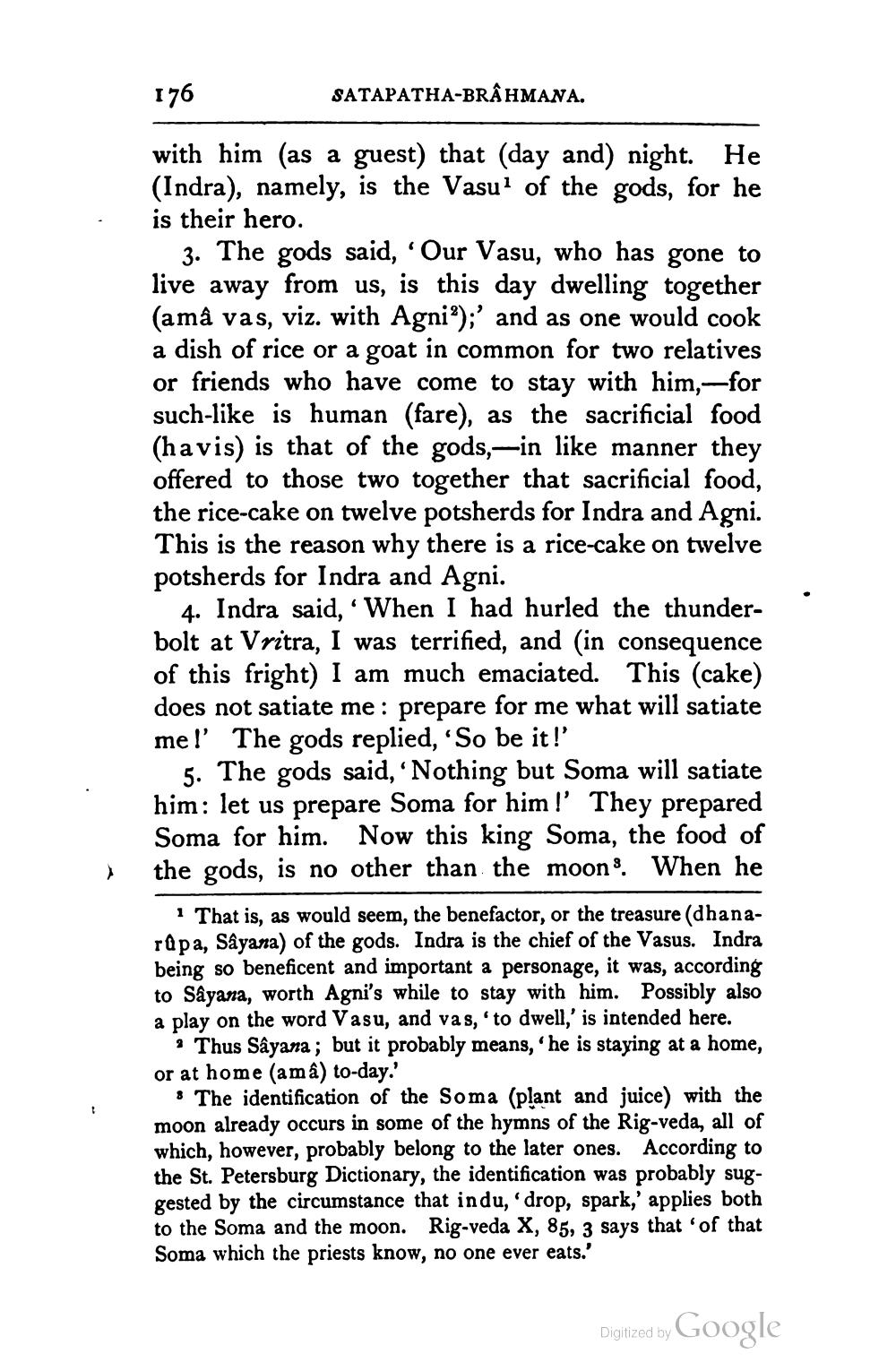________________
176
SATAPATHA-BRAHMANA.
with him (as a guest) that (day and) night. He (Indra), namely, is the Vasu' of the gods, for he is their hero.
3. The gods said, 'Our Vasu, who has gone to live away from us, is this day dwelling together (amâ vas, viz. with Agni”);' and as one would cook a dish of rice or a goat in common for two relatives or friends who have come to stay with him,- for such-like is human (fare), as the sacrificial food (havis) is that of the gods,-in like manner they offered to those two together that sacrificial food, the rice-cake on twelve potsherds for Indra and Agni. This is the reason why there is a rice-cake on twelve potsherds for Indra and Agni.
4. Indra said, 'When I had hurled the thunderbolt at Vritra, I was terrified, and (in consequence of this fright) I am much emaciated. This (cake) does not satiate me: prepare for me what will satiate me!' The gods replied, 'So be it!'
5. The gods said, 'Nothing but Soma will satiate him: let us prepare Soma for him!' They prepared Soma for him. Now this king Soma, the food of the gods, is no other than the moon. When he
1 That is, as would seem, the benefactor, or the treasure (dhanarûpa, Sâyana) of the gods. Indra is the chief of the Vasus. Indra being so beneficent and important a personage, it was, according to Sâyana, worth Agni's while to stay with him. Possibly also a play on the word Vasu, and vas, 'to dwell,' is intended here.
• Thus Sâyana; but it probably means, he is staying at a home, or at home (am â) to-day.'
& The identification of the Soma (plant and juice) with the moon already occurs in some of the hymns of the Rig-veda, all of which, however, probably belong to the later ones. According to the St. Petersburg Dictionary, the identification was probably suggested by the circumstance that indu, drop, spark,' applies both to the Soma and the moon. Rig-veda X, 85, 3 says that of that Soma which the priests know, no one ever eats.'
Digitized by Google
Digitized by




